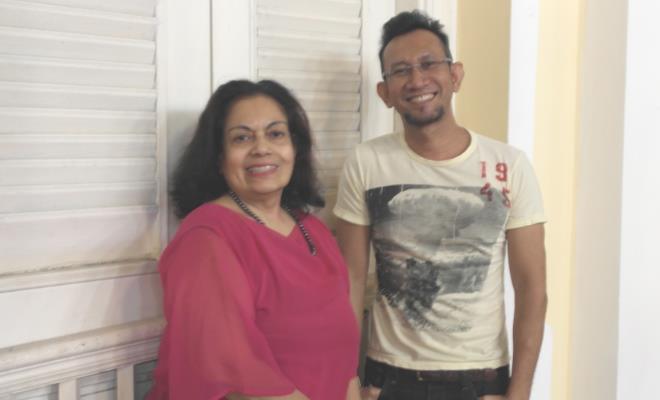Despite boria's 150 years of history, the Penang Malay-Jawi Peranakan
parody is slowly losing its grip on the heritage front. Boria, the traditional
parody theatre that was first originated from the ancient ta'ziyeh culture of
Persia is known for their medley of traditional music and chorus singing.
As the years unfold, boria's rhythm and music have picked up a more secular and
popular approach in Malaysia. Back in the days, the sounds were more
traditional akin to those in P. Ramlee movies. Now, you'll hear drumming of
military marches to sassy rhythms of rumba Latin with a hint of Bollywood in
today's boria.

Even with the given spotlight and opportunity to revitalise
boria, how do we get the audiences to come back? Dr Mumtaz emphasised the need
for awareness and making it educational as well as introducing boria courses in
university and arts schools.
Dr Hardy also stressed the importance of the Ministry of Unity, Culture, Arts
and Heritage's role in rejuvenating the traditional arts and culture in our
country. 'The ministry has to be very firm with (the arts and culture)
guideline because boria today is not consistent. Each boria group has their own
version and they'll say that's the right one.'
The ministry has to relax and let the arts move to its natural course shared Dr
Wazir. 'Singapore used to ban everything. They had zero talent and no
growth. Now, they have parodies and stand-up comedy shows because they realised
this is what the youngsters want.'
'Let the young experiment different dance styles and let them improvise and
infuse the movement of music and dance,' said Dr Wazir. 'The arts can't succeed
if it's talked down. We have to let it grow.'
In conjunction with George Town Festival,
catch 'Boria: Passage through Time' exhibition that will be held on 9 - 31 August 2014 at MPPP
Town Hall. For more info, visit our event listing.